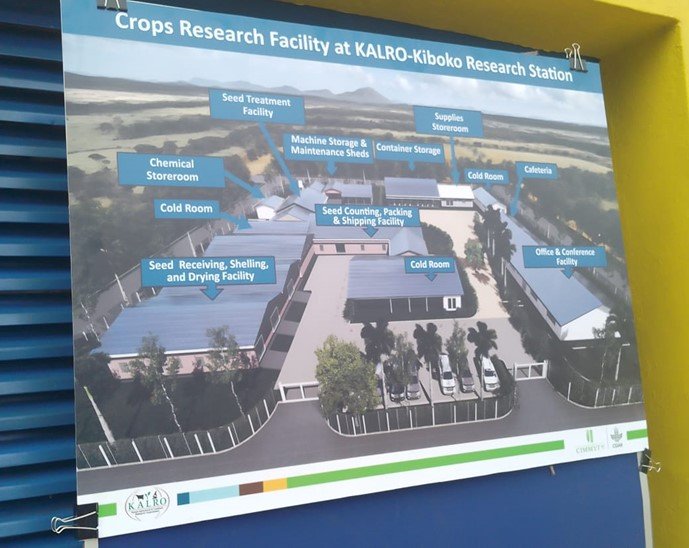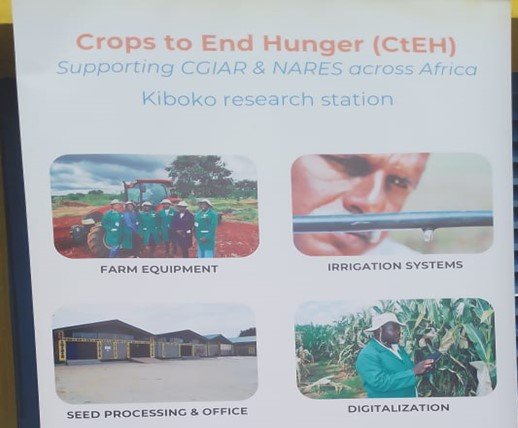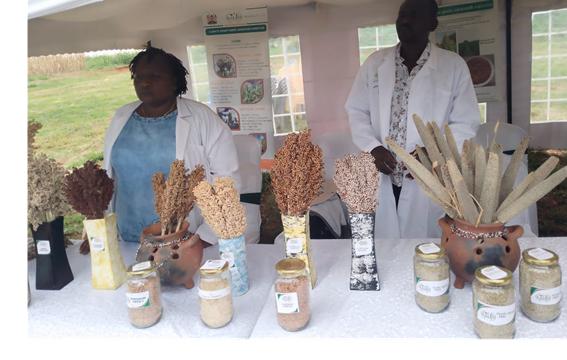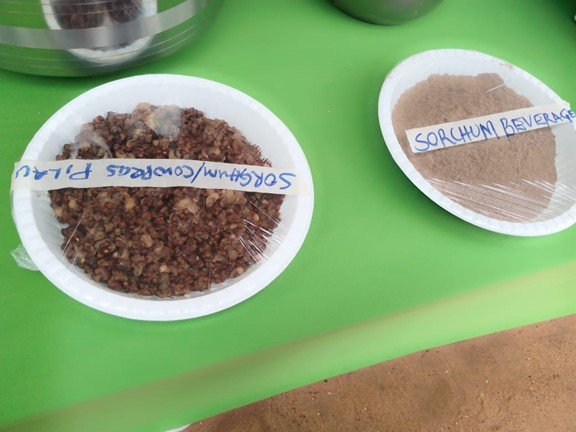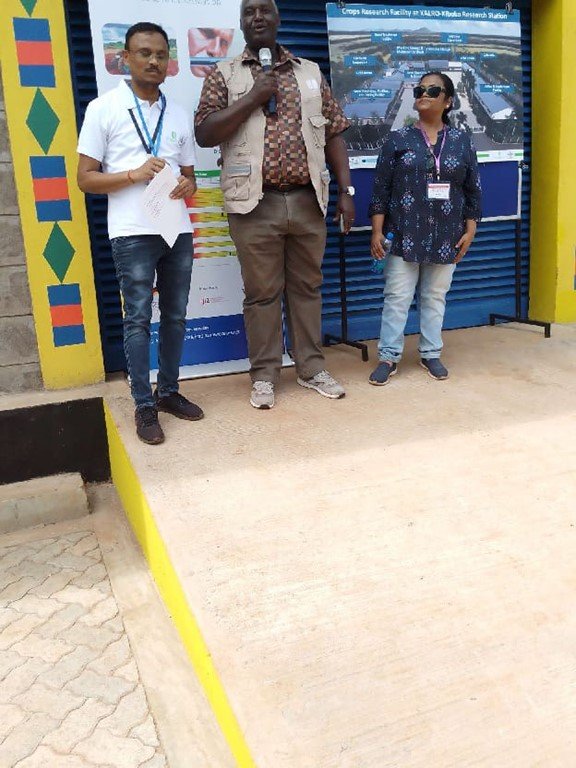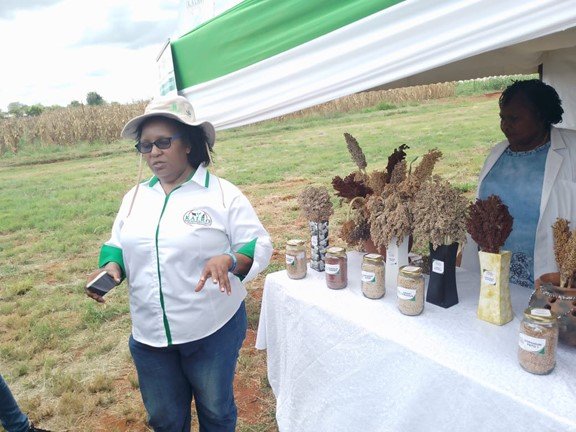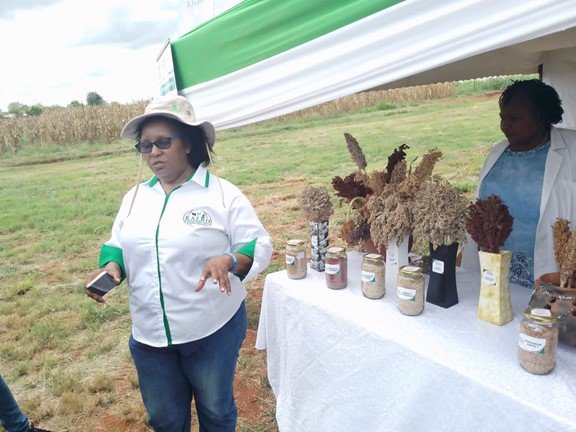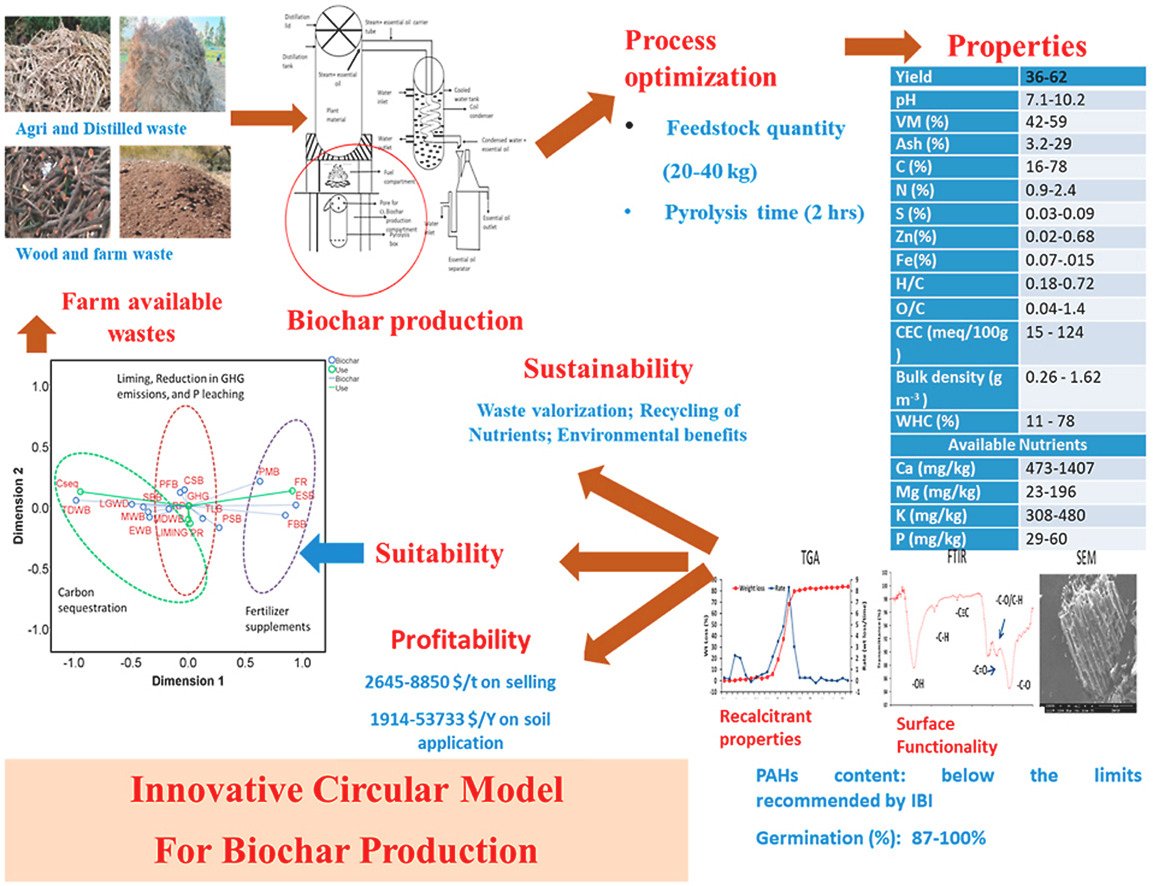Date of Trip: 05/04/2025 | Location: Kiboko Research Station, Kenya
In a landmark event held at the Kiboko Research Station in Kenya, the CGIAR Science Week brought together a diverse group of stakeholders in the agricultural sector to explore the latest research and innovations aimed at promoting food security and sustainable farming. The field trip, attended by agricultural scientists, farmers, youth leaders, and representatives from key organizations such as CIMMYT, ICRISAT, KALRO, and ADCIN, provided invaluable insights into the ongoing efforts to address climate change challenges and enhance agricultural productivity.
A Key Role for Youth in Agriculture
A significant highlight of the Kiboko field trip was the emphasis on engaging youth in agricultural research and innovation. Among the notable attendees was Evans Kirigha from the Global Sustainable Futures Network (GSFN), who was invited by the Ambassador of France to Kenya, H.E. Mr. Arnaud Suquet. Mr. Suquet has been a key figure in strengthening the relationship between France and Kenya, particularly in areas related to sustainable development, agriculture, and innovation.
Evans Kirigha’s presence underscored the importance of youth participation in shaping the future of agriculture, and GSFN’s involvement added a global dimension to the field trip. The event provided a platform for youth to engage directly with agricultural experts and organizations, learning about cutting-edge research and the critical role they can play in driving agricultural transformation.
Groundbreaking Research in Agriculture
The Kiboko Research Station has long been a hub for agricultural innovation, and this field trip showcased several areas of pioneering research aimed at addressing the challenges of food insecurity and climate change. Key research areas presented included:
- Drought-Resistant Crops: Researchers presented efforts to develop maize, pigeon peas, sorghum, and groundnuts that are more resilient to drought, a critical issue in the semi-arid and arid regions of Africa. Drought-resistant maize, for instance, aims to increase yield and improve resilience to unpredictable weather patterns, while pigeon peas and sorghum are being tailored to withstand the region’s changing climate conditions.
- Soil Fertility and Sustainability: KALRO representatives emphasized the importance of soil health in sustainable farming, discussing research on improving soil fertility and combating soil degradation. Their research focuses on developing crop varieties that help restore soil nutrients while reducing dependency on chemical fertilizers.
- Digital Agriculture: With the rise of technology in agriculture, digital tools such as mobile apps, drones, and precision agriculture tools are being integrated into farm management practices. These technologies can significantly enhance farm productivity and climate resilience by providing farmers with real-time data and insights to make informed decisions.
Creating Opportunities for Youth
One of the central themes of the field trip was the need to create more opportunities for young people in agriculture. With the agricultural sector facing both challenges and opportunities, youth engagement is critical for long-term success. During the trip, several avenues for youth involvement were highlighted:
- Internships and Fellowships: Leading research institutions like CIMMYT, ICRISAT, and KALRO offer internship and fellowship programs, providing youth with hands-on experience in crop breeding, pest management, and sustainable farming practices.
- Entrepreneurship in Agriculture: A growing focus on agri-business development was discussed, with young entrepreneurs encouraged to venture into fields like organic farming, agricultural technology, and value-added products. Training in business management and access to funding opportunities were identified as key enablers for success in this space.
- Training and Capacity Building: Workshops and training programs for youth and farmers were recommended to build skills in soil health, pest control, and climate-smart agriculture. The aim is to equip youth with the tools to become the next generation of farmers who can adapt to the changing climate and improve productivity.
Strengthening Partnerships for Sustainable Agriculture
The field trip also highlighted the critical role of partnerships in achieving sustainable agricultural development. Representatives from CIMMYT, ICRISAT, KALRO, and ADCIN discussed the importance of collaboration between research institutions, farmers, and youth organizations to drive lasting change in agricultural practices.
- Mentorship and Community Engagement: Partnerships between youth-focused organizations like ADCIN and agricultural research institutions were encouraged to foster mentorship opportunities, ensuring that young people have the support they need to thrive in agriculture. Furthermore, community outreach initiatives led by youth were seen as essential for spreading knowledge about sustainable farming practices.
- Public-Private Collaboration: The role of government agencies, NGOs, and the private sector in supporting youth initiatives and agricultural innovation was also emphasized. Creating a conducive environment for youth-led agricultural projects and providing pathways for youth to participate in decision-making processes were seen as key steps toward achieving sustainable agriculture.
The Way Forward: Recommendations for Enhancing Youth Engagement
The Kiboko field trip concluded with several key recommendations aimed at further strengthening youth engagement and promoting sustainable farming practices in Africa:
- Expand Internship and Fellowship Programs: Research institutions like CIMMYT, ICRISAT, and KALRO should offer more opportunities for youth to engage in hands-on agricultural research and innovation.
- Create Funding Opportunities for Agri-Entrepreneurs: Young people should be provided with more access to funding and resources to help them start and scale agricultural ventures. This can include grants, seed funding, and support for developing business plans.
- Promote Digital Agriculture Education: Training programs should focus on digital agriculture tools like mobile apps and drones, helping youth gain the skills necessary to improve farm management and productivity.
- Strengthen Collaboration Between Stakeholders: Partnerships between research institutions, government agencies, NGOs, and youth organizations should be enhanced to foster innovation, mentorship, and capacity building.
Conclusion: A Call to Action
The Kiboko field trip underscored the transformative potential of youth in shaping the future of agriculture. With the right tools, training, and support, young people can become key players in driving innovation, enhancing food security, and building climate-resilient farming systems. As the world faces the dual challenge of feeding a growing population while addressing the impacts of climate change, empowering youth in agriculture is no longer just a possibility—it is a necessity.
The insights and recommendations shared at the Kiboko field trip are set to inspire continued engagement, learning, and innovation in the agricultural sector, ultimately paving the way for a sustainable and prosperous future for all.
